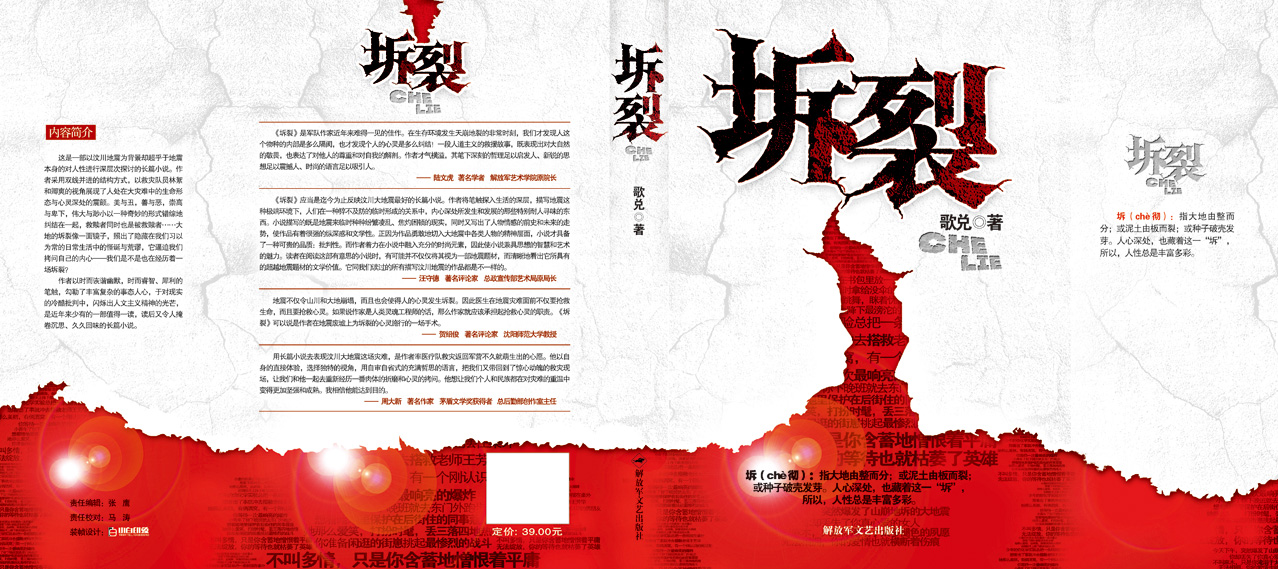Romance Sichuan earthquake novel galvanizes critics
 |
|
Book cover of Crack. [Xinhua] |
Six months after completing his medical rescue work in the 2008 May 12 Sichuan earthquake, Ge Dui, author of Crack and a military hospital medical officer, found the 80 days he spent working in the disaster area still haunted him.
He just couldn't move on with his life, even after his mission was deemed accomplished. "I owe an earnest confession," he said, recalling the unexpected disaster that claimed many lives and redefined his world.
"I'd despise myself if I hadn't been sent to rescue the wounded. I grew bigger from earthquake relief," he said, "in other words, I began to hate some of my past life since the experience."
That has nothing to do with the earthquake relief itself, he said, but simply a previous existence of apathetic and passive attitudes. "We haven't found out the meaning of life in this era, and have gradually abandoned our efforts in seeking it."
People are aware of good values but they just don't abide by them; rather, they curse a troubled world, he added.
With the Sichuan earthquake as its background, the ground-breaking novel Crack blends many genres: a military operation without any war, a paean to heroism, a psychosexual journey and an exposure of human nature and cruelty.
Something more painful and divisive than the earthquake itself is the "crack" in our mind, said the author. People are forced to deal with a world which is neither new nor old, real or virtual, tangible or imaginable, Ge Dui believes.
 0
0 






